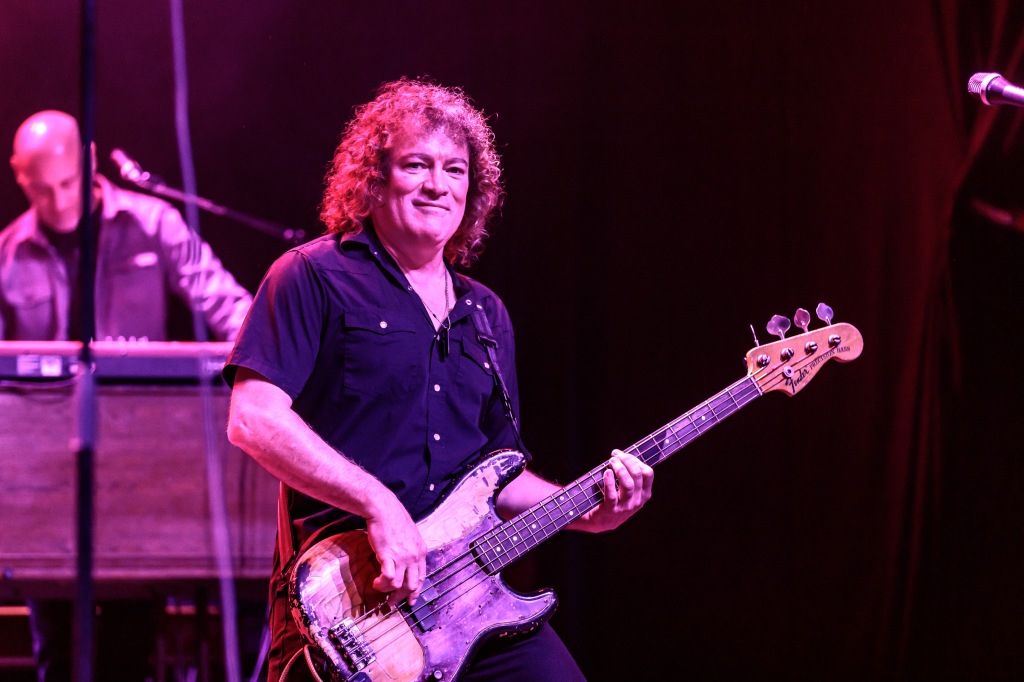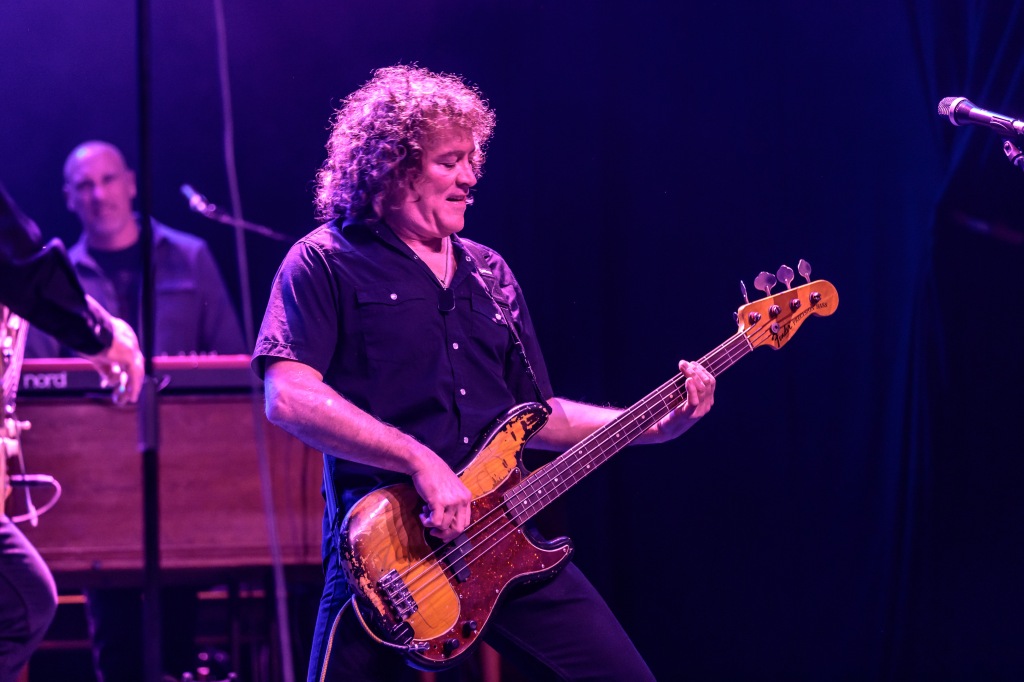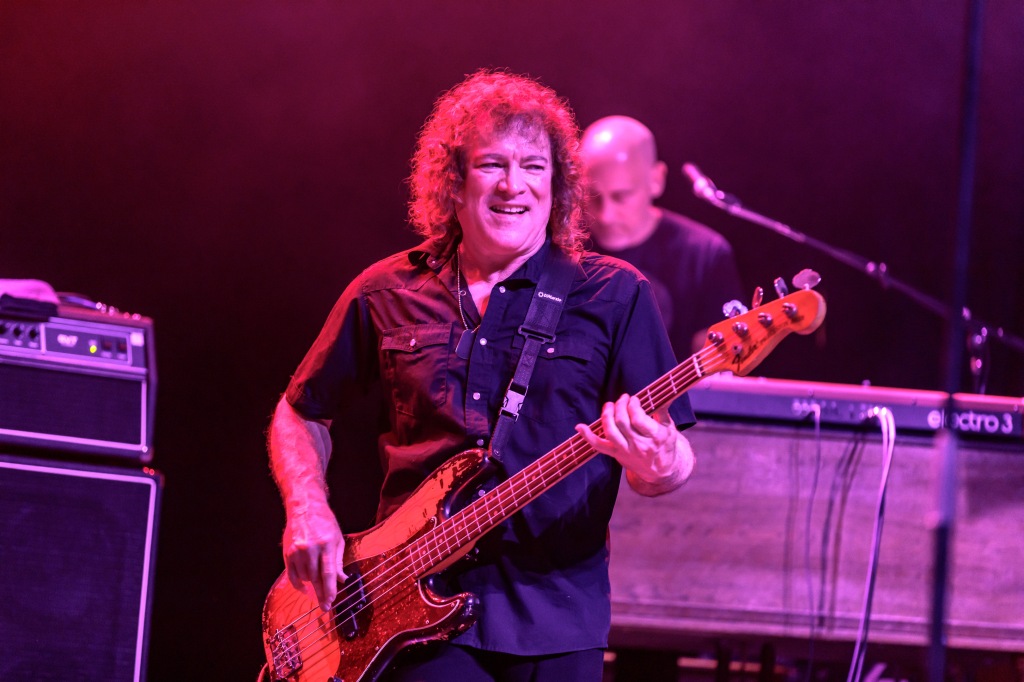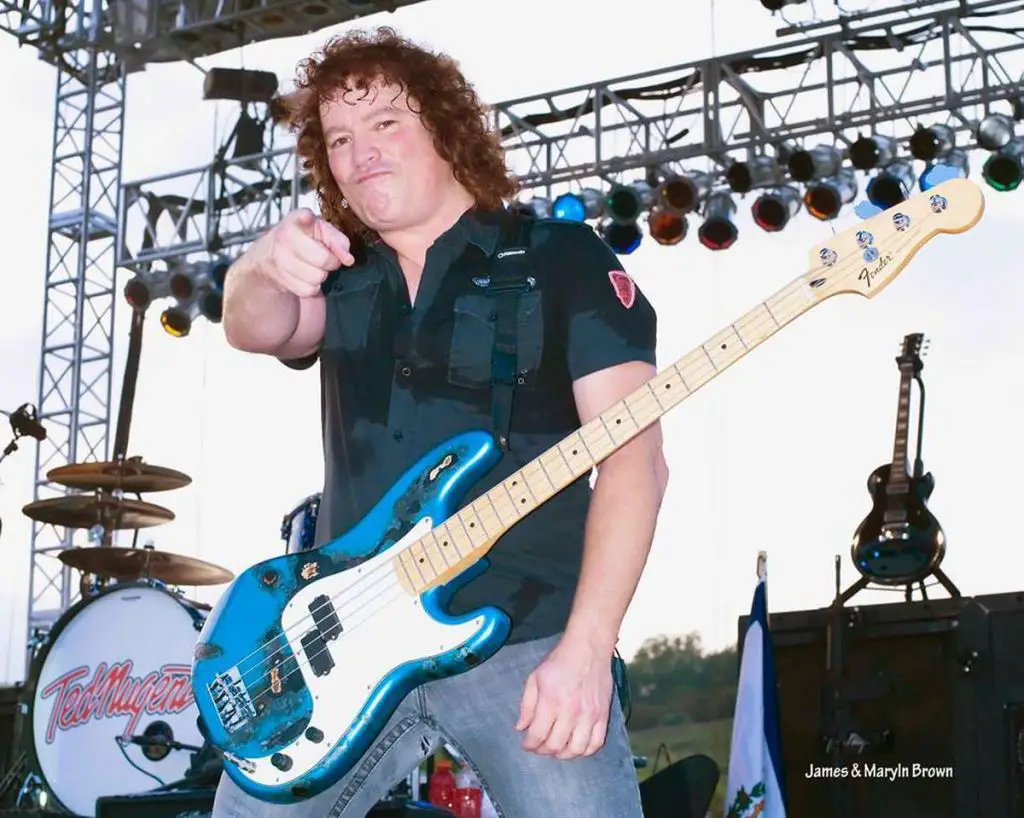
Recently, we caught up with veteran bassist, Greg Smith. Among other things, we touch on what he’s been up to during the lockdown, his origins, working Ted Nugent, Billy Joel, Alice Cooper, and a whole lot more. If you would like to learn more about Greg Smith dig into this interview with Greg. Cheers.
Andrew:
Greg, I appreciate you taking the time today. How have you been holding up over the last year or so? What have you been up to?
Greg:
Strangely enough during the pandemic, I was pretty busy. Starting the very first week of lockdown, I did weekend concerts on my property and streamed them. They were pretty well received and we’d get thousands of viewers from all over the world. I think we did it for about ten weeks or so. We pretty much stopped after everyone who ever picked up a guitar started doing them. I also did a lot of recording and collaboration videos which was lots of fun. People started requesting specific songs and would PayPal us to do them. It was pretty cool and definitely made me think outside the box. After all, my business is Social Gathering, so, Social Distancing was killing me among many others.
Andrew;
Before we dive into your professional career, let’s go back a bit. What first got you hooked on music?
Greg:
I’d say listening to all that great Rock of the 70s. They were true Rock Stars and I wanted to be one of them! As far as bass specifically, my birthday is in May, and my sister is in April, she got a guitar for her birthday and said, “Let’s start a band. You can play bass.” I said “OK,” and sure enough for my birthday the next month, I got a bass. We both started taking lessons and she quit after two weeks. As for me, after three months I was in a band, and after four months I was doing gigs.
Andrew:
As a bassist, who were some of your early influences?
Greg:
I’d say my early influences were Geezer Butler, John Paul Jones, Gary Thain, and Boz Burrell. My later influences are James Jamerson, Jaco Pastorius, Rocco Prestia, Duck Dunne, and Paul McCartney.

Andrew:
Let’s go back now and start with Ted Nugent. Take me through how you got the gig with Ted.
Greg:
I had played with Dokken on their 2003 tour, and in 2007, Wild Mick Brown was playing with Ted, and called and asked me if I’d be interested as Ted needed a bassist who could sing. I said, “OF COURSE!” Mick then asked, “Do you sing lead?” I said, “Yes,” and he said, “Good ’cause I told Ted you did.” [Laughs].
Andrew:
Ted Nugent is a very colorful guy, to say the least. What’s it been like working with, and touring with Ted?
Greg:
It’s going on sixteen years now, and Ted has been nothing but great to work with. He is always up for suggestions and input and treats us all like family. He’s always very gracious when doing interviews…every time he does an interview and talks up the band members.
Andrew:
Over the years, you’ve worked with a ton of fantastic artists such as Billy Joel, Rainbow, Blue Öyster Cult, and perhaps most notably, Alice Cooper. Take me through how you came to work with Alice. Ultimately, what led to you moving on from the gig?
Greg:
In 1991, I did an album with Vinnie Moore called Meltdown. We were playing the NAMM show in Anaheim, CA with the amazing Joe Franco on drums. Joe was endorsed by Premier drums, and we were performing a few shows a day at the Premier booth. Alice’s personal assistant, Brian Nelson, and Epic records A&R man, Bob Pfeiffer walked in and liked how Vinnie, and I played and looked. In 1991, that was an important factor. After auditioning guys in LA, and not coming up with anyone, they offered us the gig. The first time Vinnie and I met Alice and the band, Stef Burns, Eric Singer, and Derek Sherinian was on the set of the video for “Hey Stoopid.”

Andrew:
I know you’ve got a history with Billy Joel as well, and are in the band Off the Road with Billy’s drummer, Chuck Burgi. Are you planning on working with Billy any further as we move forward?
Greg:
Well, there are no official plans to work with Billy, but you never know. I’ve been friends with all the guys in Billy’s band, and Billy since my good friend Tommy Byrnes got the gig in 1990. My capacity in playing with Billy has been doing his show, Movin’ Out, on Broadway for three and a half years, and one year on the road filling in for his usual bassist after Hurricane Sandy devastated the east coast. Billy did a telethon on NBC, and a show at Madison Square Garden, 12-12-12, that included The Stones, Paul McCartney, The Who, Foo Fighters, and many others. I was asked to do these shows. I was also recently asked to fill in for a show at Fenway Park due to his regular bassist testing positive for COVID. They ultimately decided to move their acoustic player, who is actually a great bassist in his own right, over to bass guitar for the one show.
Andrew:
Take me through the formation of Off the Road. What’s on the horizon for the band?
Greg:
Off The Road is nothing more than me getting together with some local musicians here in Northeastern, PA when I’m not touring or otherwise busy. We just play old tunes from the 60s and 70s. Basically, tunes we wish we wrote! Nothing much on the horizon except some local gigs in the New Year when I can.
Andrew:
Going back to the 90s, you were a member of a reformed Rainbow, and you recorded the bass tracks for the underrated record, Stranger in Us All. What can you tell me about hooking up with Richie Blackmore, and the recording of that record?
Greg:
Drummer John O Reilly and I played and recorded extensively with Joe Lynn Turner. When John got the Rainbow gig, he recommended me. I was playing a club on Long Island, and singer, Doogie White, showed up. He mentioned who he was and that Ritchie [Blackmore] would be stopping by to check me out. I invited Doogie up to sing a few songs…just then, a purple Mercedes pulled out front, and Ritchie was listening in the car. Apparently, he liked what he’d heard ’cause he then parked and came in. He was playing Foosball after we finished our set I went over and said, “Hello.” He mentioned he liked the way Doogie, and I sounded singing together. I was brewing my own beer back then and offered him one as I’d brought a few to the gig. He thought that was pretty cool, and invited me to come up to the mansion he’d rented in the Hudson Valley, NY to jam. On that day we played a lot of Blues, touched on a couple of the riffs that would eventually be songs on the Stranger In Us All album, and had a few drinks. After we were done he said, “Right, if you want the job you’ve got it,” and then promptly left. I wasn’t sure whether I’d heard right but was still asked to come up to work out the songs. I didn’t realize I was actually in the band for a couple of weeks!

Andrew:
The 1990s was a volatile time for 70s and 80s rockers. This said, in your opinion, did Grunge have as much of an effect as it’s perceived to have had on Heavy Metal? Even if it did sort of “kill Metal” for a time — were you a grunge fan? What are your thoughts on countless mainstream acts such as KISS, Mötley Crüe, and more “going Grunge” in the 90s?
Greg:
It was a terrible time…I was in Alice’s band, and we didn’t tour for a long time. I never liked Grunge. Most of the musicians were not very good players, and I’ve always been a fan of great players. I’d say the only band I liked was Soundgarden, but to be honest, that sounds more like Metal/Rock to me.
Andrew:
Much is made of the 1980s golden age of Hair Metal and Glam Rock. Looking back, was it really as crazy as it seemed? What was your experience like?
Greg:
Wow, the 80s…this will be a short answer. Crazy? All I can say is — I’m glad I’ll never run for office of any kind! [Laughs].
Andrew:
Easy one’s now. What are a few of your favorite albums, and why?
Greg:
That’s actually tough because there are so many. A couple that stick out are Deep Purple‘s Made In Japan, Rainbows’ On Stage, and anything by Led Zeppelin, or The Beatles.

Andrew:
What other passions do you have? How do those passions inform your music, if at all?
Greg:
I live near the Delaware River and absolutely love getting out on a raft or canoe. Nothing to do with music, it just relaxes me and grounds me. Also, spending time with my wife, and daughter is also very important to me.
Andrew:
What sort of equipment do you use in the studio, and the live setting?
Greg:
I’ve got so many basses but lately, in the studio, I’ve been using a 1982 Fullerton ’57 Reissue Fender Precision Bass that has a Jazz pickup in the bridge position, or a Music Man Stingray bass. find that they cut through the mix, and my bass tracks are heard no matter how hard the mix gets screwed up! Live, I don’t use either of those. To me, they don’t sound as good in a live scenario. It also depends on the band. If there’s a lot of guys up there, I’ll go for a Fender Jazz Bass as again it will cut through the mix a little better. When it’s a three-piece like Ted, a big meaty Fender P bass is the ticket. All run through Hartke gear.
Andrew:
Last one. What’s next for you as we move forward? Do you plan to hit the road and tour?
Greg:
I’m currently on a break from the Wizards of Winter tour. A Rock Opera featuring three ex-members of Trans Siberian Orchestra. The band also includes John O Reilly, and my Tokyo Motor Fist bandmate, Steve Brown.
Interested in learning more about the music of Greg Smith? Check out the link below:

Dig this interview? Check out the full catalog of VWMusic Interviews, by Andrew Daly, here: www.vinylwritermusic.com/interviews





Leave a Reply